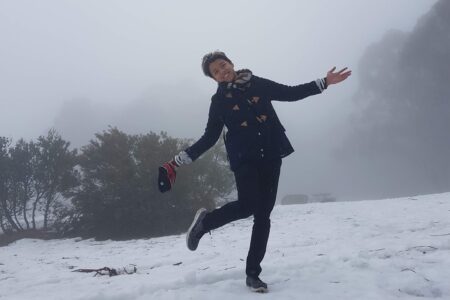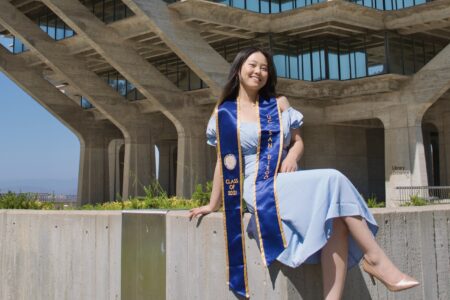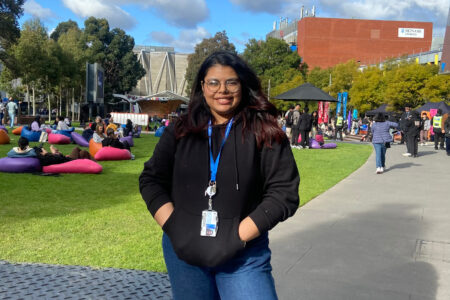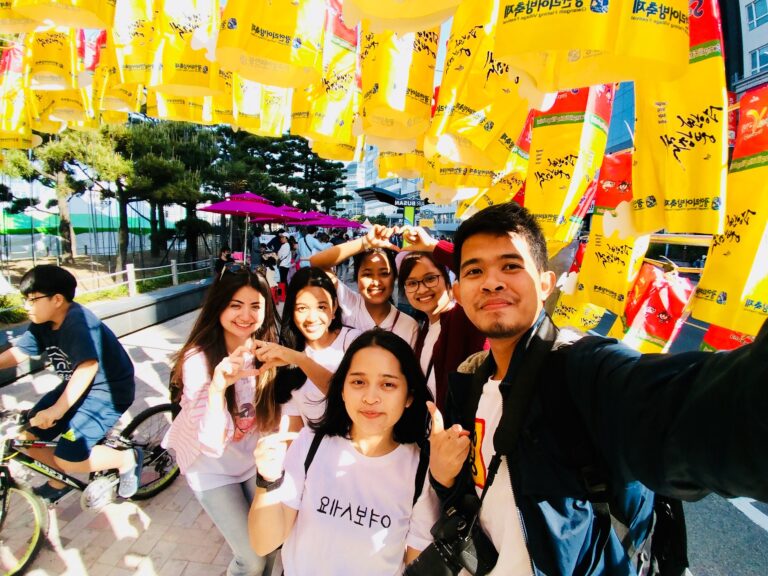
When Prechaya Chaogunha was 16, she attended Franklin High School in El Paso, Texas, for an exchange programme.
Little did she know that this is the start of a journey that would make her known as “the one who won scholarships” to study in as many as three countries in the future.
“I didn’t really think much of it at first because I just wanted an adventure,” she said. “But on the plane, it suddenly hit me – this was the first time that I was going abroad, and all alone at that. I only knew America through TV series and movies.”
With adventure came challenges. She initially struggled to fit in, especially with her host family.
“I find that back then, grownups also treated children as adults or saw them as somewhat of their equals,” she says. “I had to learn pretty quickly how to rely on myself, but it was cool because it’s America – you could be literally whatever you want.”
Her year in the US quickly made her a resilient character, something she was definitely grateful for in her later years. Notably, it also fuelled her passion for adventure even further, and encouraged her curiosity about other countries and their cultures.
After her graduating from Chulalongkorn University in Bangkok with a degree in cultural studies, she went volunteering in Korea for three months, working with farms and senior citizens in the provinces.
Even after that, she wanted more. So she applied for a scholarship in Indonesia.
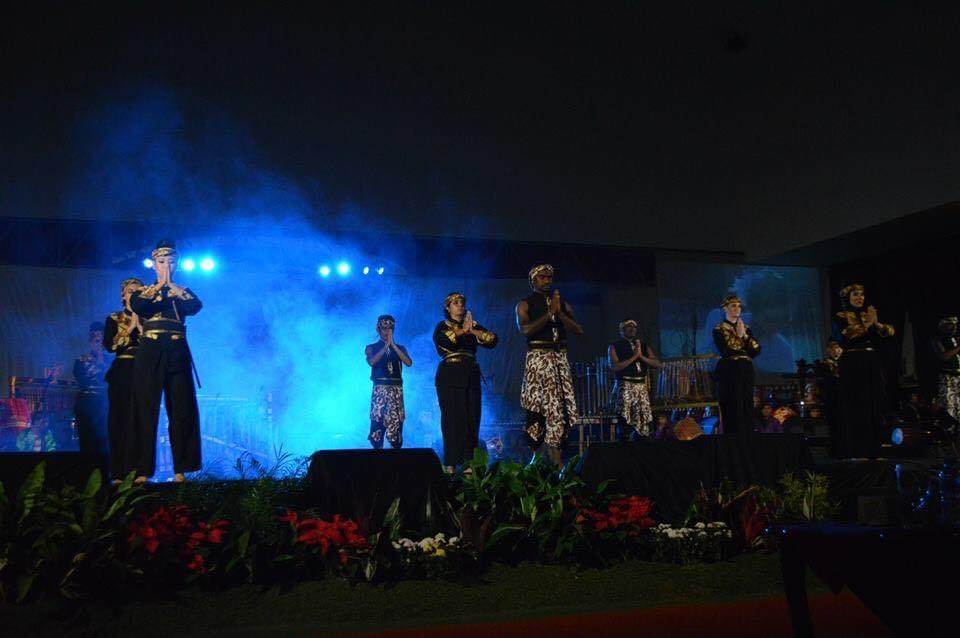
The Thai student won scholarships to several Southeast Asian countries. Source: Prechaya Chaogunha
Won scholarships to Indonesia and South Korea
The Ministry of Foreign Affairs in Indonesia granted Chaogunha a scholarship, named the Indonesian Arts and Culture Scholarship.
“I was assigned to an arts centre that specialised in delivering performances about angklung and Jaipong Dance,” she said. “There were about 70 to 80 of us from different countries, and we learned about Indonesian music and performances. I even learned ‘silat’ martial arts local to this region.”
For around four months, Chaogunha learned everything she could about Indonesian music and performing arts. At the end of the scholarship, her cohort performed to locals, including ministers and diplomats from the Ministry of Foreign Affairs.
But she did not return home after that. In fact, she chose to remain in Indonesia, and worked at the Ministry of Foreign Affairs in the International Organisation Department.
“I was a green diplomacy officer and we worked a lot with the UN to support the local government in international conferences,” she said. “Unfortunately, I quit after six months for two reasons – my grandma was ill, and the Indonesian government was under a coup d’etat. I couldn’t risk it, so I came back to my hometown.”
For a while, she taught at a Cambridge language centre while taking care of her grandmother. Rather than regular school students, she taught English at different companies, such as industrial organisations like Honda.
But Chaogunha still longed for adventure. She recalled her time in Korea and reflected on how much she loved the culture there.
“I applied for the GKS Scholarship (KGSP), which is a government scholarship,” she said. “They basically send you to Korea to study Korean for a full year and then you will have two years of master’s. You have to apply through either the embassy or have an interview with a university of your choice.”
Instead of applying through the embassy like most, she reached out to the Department of English Language and Literature at Busan University.
The reason? That department was particularly well-funded by the government and would provide her with many opportunities to participate in activities and receive incentives.
Soon after she won the scholarship, she started with a year of intensive Korean language training at Busan University of Foreign Studies.
“Day in, day out, five days a week – it was all about studying the language and passing level four for The Test of Proficiency in Korean (TOPIK),” she said. “After a year in Busan I started my master’s degree at Yonsei University, majoring in English language and literature for two years.”

After she won scholarships to Indonesia and South Korea, Chaogunha was inspired to open her restaurant, A Million Leaves Farm, located in Mueang Prachinburi District. Source: Prechaya Chaogunha
Opening her own restaurant back home
Chaogunha loved many things about Korea, but if she had to pick just one, she was a big fan of their cuisine. Tea was her favourite. So much so that she went to province after province to drink tea while volunteering at local farms.
“I’m someone who really, really loves tea – coffee, not so much,” she said. “I went around Korea drinking a lot of tea and I had lots of tea while working on the farms too. Korean culture involves drinking after work, so it was either tea or makgeolli (rice wine), so I would do that a lot with the Korean uncles.”
After Chaogunha returned to Thailand, she got an offer from Wisconsin Madison in the US to pursue a PhD in Anthropology. Unfortunately, it was in the midst of COVID-19, and even though she was eager to pursue a PhD, funding was tight, and she had to let the opportunity go.
But she didn’t let it get to her. Instead, she devoted herself to building and opening a Korean restaurant of her own in Prachinburi.
“I’ve always wanted to open a cafe,” she said. “It took us a year to design and build it and now we’ve been open for two and a half years.”
Chaogunha is now the proud owner of A Million Leaves Farm, a beautiful restaurant offering a wide range of Korean, Thai and Western food, along with drinks and desserts.
“We’re famous for our tea and tteokbokki, which are my own recipes,” she said. “We also serve samgyupsal, which is Korean barbequed meat.”
A large portion of the restaurant’s theme is inspired by her time studying in Korea, where she often enjoyed cooking and eating with her friends. Back then, she would go to a department store and buy lots of meat and vegetables to cook, then enjoy them either at home or while camping with friends.
Back in Thailand, she runs the cafe with her retired parents, cooking, taking orders and chatting to customers. Even though it’s busy most of the time, she loves it, and enjoys interacting with people the most.
But her dream to pursue a PhD never really left her mind. So once she was able to run the cafe smoothly with her parents’ help, she resumed her applications and research.
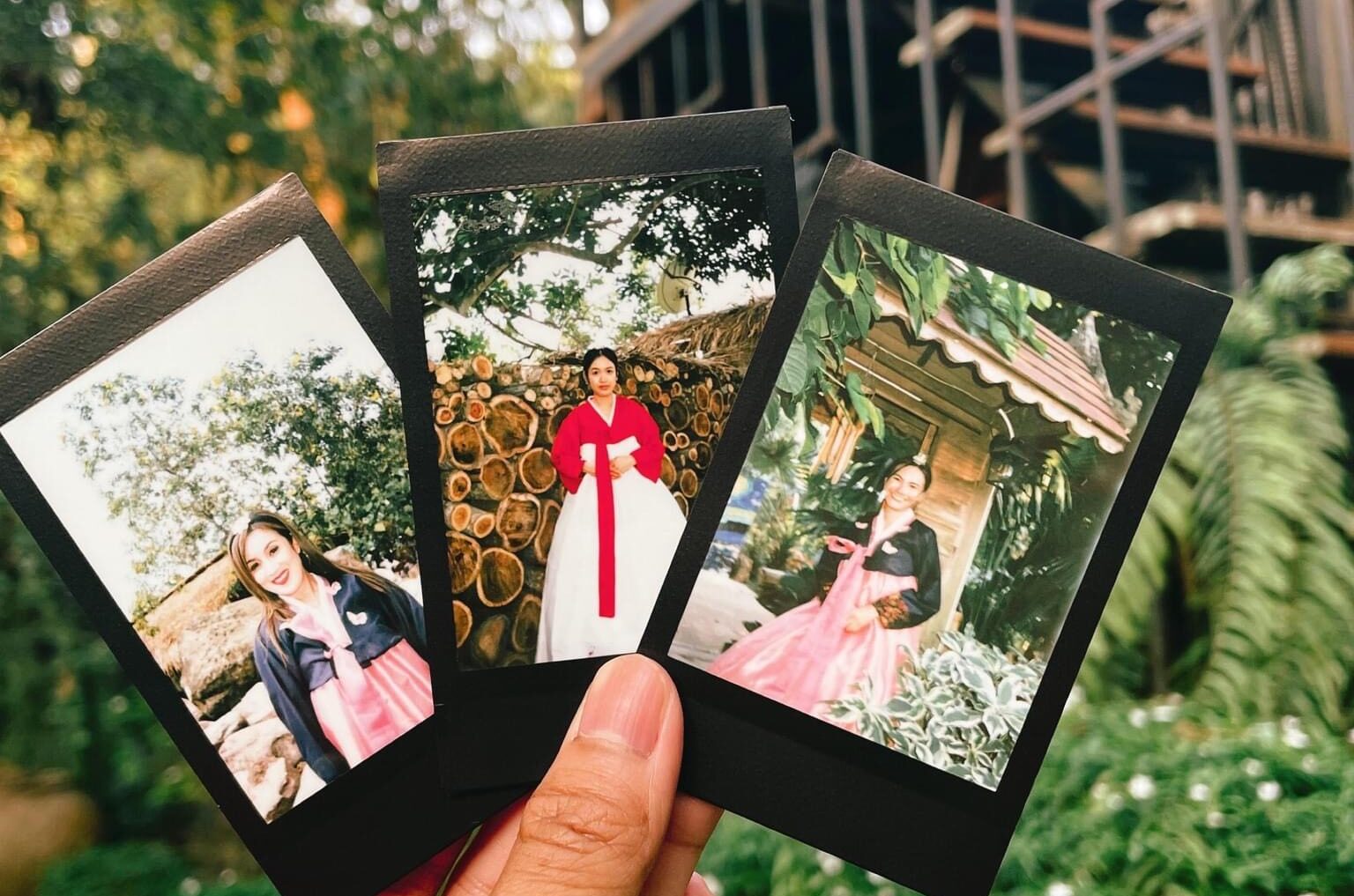
Chaogunha (middle) entrusted her parents with her restaurant while she pursues her PhD full-time. Source: Prechaya Chaogunha
Travelling to Monash University, Malaysia
Eager to explore her interests in Thai politics, Chaogunha contacted a professor who specialised in that field. By a stroke of luck, he happened to be in Bangkok, and she was able to have an interview with him shortly after she reached out.
With his encouragement, she applied for another scholarship, the Monash Graduate Excellence Scholarship. This scholarship is offered to students who possess a minimum academic qualification of First Class Honours or equivalent, and comes with a full tuition fee waiver and a monthly stipend of RM2,800 (US$595).
“Doing a PhD was always the plan, and I think I would have regretted it if I hadn’t continued on,” said Chaogunha. “It’s not the end, but it’s the best academia in terms of formal education, and I wanted to see it through.”
Chaogunha is now pursuing her PhD at Monash University, working on a project about vocational students, and how they have played a significant role in shaping the country’s political landscape. Her thesis is titled: Because We are Aa Chee Wa: A Requiem for Vocational Students in Thailand’s Political History.
Vocational students are individuals who pursue education and training in specific trades or skills, such as carpentry, mechanics, or hospitality, rather than traditional academic subjects.
In Thailand’s political history, vocational students have often been involved in political movements and protests, advocating for their rights and demanding reforms in the education system to better support vocational training.
In the 1970s, vocational students were part of the mass protests against the military dictatorship in Thailand, known as the Thammasat University massacre. It is one of the worst in political history, involving a clash between students and civilians against police and ultranationalist forces. Despite their attempts at challenging authoritarian rule and fighting for democracy, the clash ended with the deaths of over 100 students and civilians.
“I meet with my professor often to discuss the progress of my thesis,” Chaogunha said. “Overall, it’s an extremely independent programme and I need lots of discipline. But I’m super grateful that it’s fully funded, and that we can focus 100% on our research.”
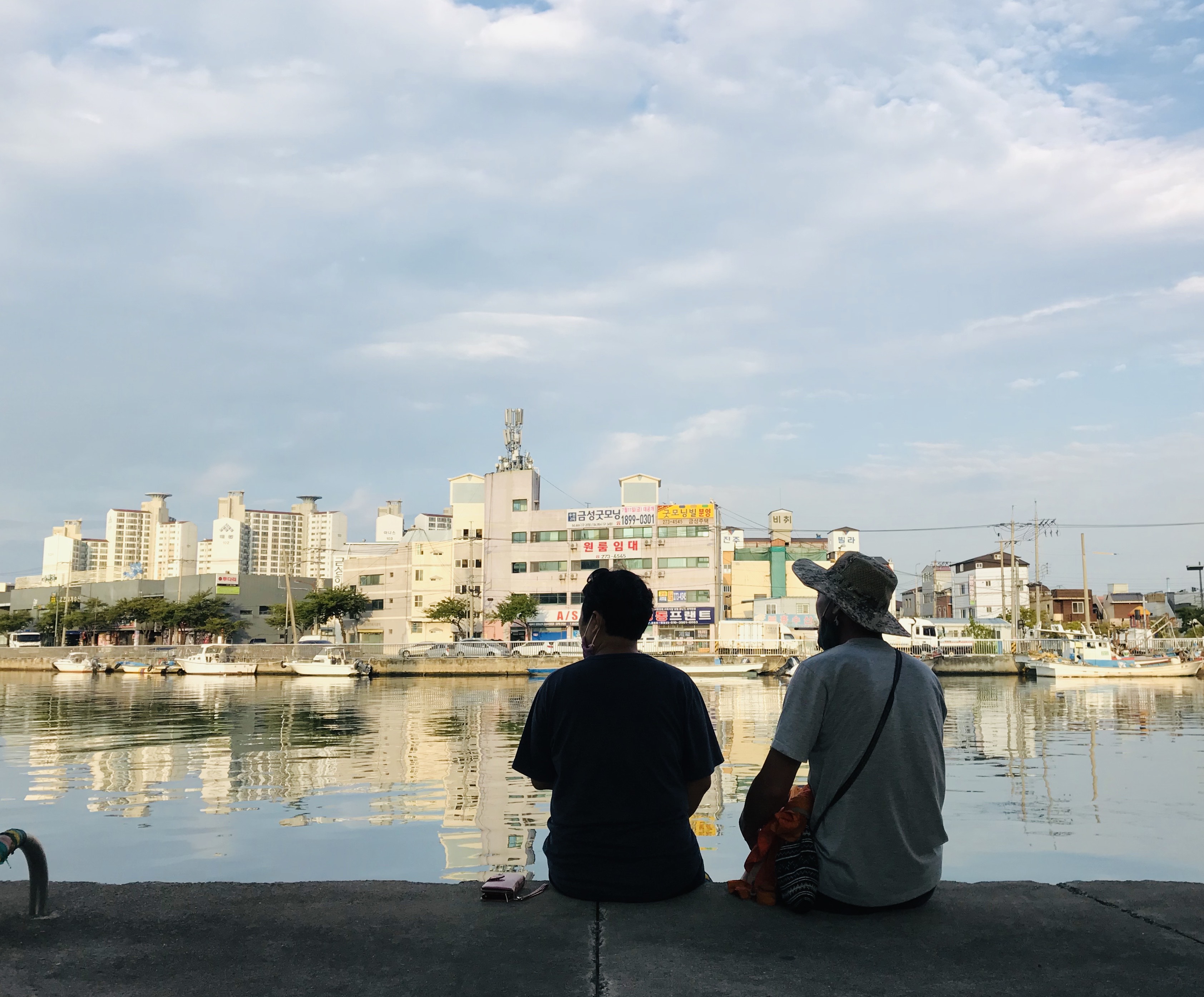
Chaogunha loves travelling and learning more about their local cultures and stories. Source: Prechaya Chaogunha
Currently, Chaogunha is in her first year of her PhD, working on her research while teaching classes at Monash.
In her spare time, she manages her cafe’s marketing and social media remotely, while her parents run it back home. She also often travels out of state to go on solo hiking trips.
“I like challenging myself, and so do the uncles and aunties who take the same hiking trails as me,” she says. “I often take the chance to disconnect and hike on challenging trails, where I need to climb up ropes and cliffsides. It’s a good way to ground myself.”
She plans to return to Thailand for her second year to seek out former vocational students and speak to them for her thesis. After that, she will return to Malaysia to complete her thesis.
“I will spend one year here doing my research and teaching, and then I will return to Thailand for the second year,” she says.
“As my project is about the history of vocational students in Thailand, I plan to seek them out, interview them, and learn more about their stories. I’ll ask them about their memories and lived experiences, and analyse how they interact with Thailand as a whole, as histories of vocational students are formally invalid by the state.”
But Chaogunha’s journey with academia is not set to end soon.
“I could go back to Thailand and apply for a job in academia. I’ve always been interested in research, especially in the stories of marginalised people, loss history and stories,” she said. “Another path I’d like to explore is becoming a diplomat. That way, I can engage with other humans, and have hands-on experience with different sectors of society in various countries.”








